What is Dark Tea?
Dark Tea, characterized by processes such as pile fermentation, pine wood open-fire baking, and fermentation, is unique for being the only tea that can be stored for long periods, with its flavor improving over time. Known for its mellow taste and dark brown color, it is one of China's six major tea types. Dark tea, with its special raw materials, complex processing mechanisms, unique quality, and remarkable health benefits, is considered a premium tea.
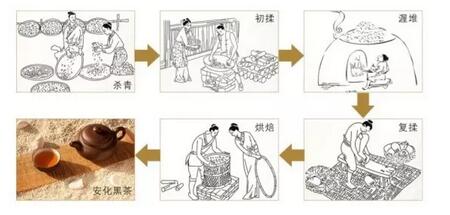
The Uniqueness of Dark Tea Raw Materials
The distinct quality of dark tea comes from its unique raw materials. Dark tea is typically made from mature leaves, which contain higher levels of tea polysaccharides, proteins, specific amino acids, tea pigments, and tea saponins compared to younger leaves. The aromatic compounds are also more concentrated in the mature stems and leaves, enhancing the tea's health benefits. Additionally, mature leaves are more conducive to the post-fermentation process, improving the quality of aged dark tea.
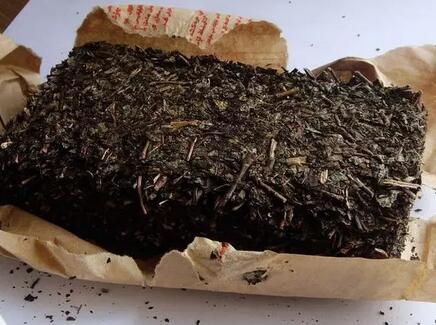
The Miraculous Pharmacological Effects of Aged Dark Tea
Aged Fu Brick Tea produces a large amount of polyphenol oxidase, cellulase, peroxidase, pectinase, and protease during post-fermentation. It also contains essential amino acids, vitamins, and trace elements, which effectively block the formation of carcinogenic nitrosamines in the human body.
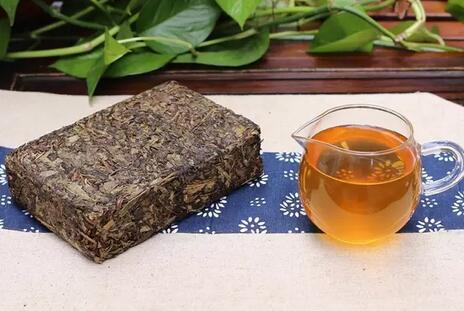
Aged Fu Brick Tea generates hundreds of precious enzymes during storage, which help cleanse the kidneys and are beneficial for kidney health. Due to its cell-wall-breaking properties, it penetrates deeply into the prostate, producing unique effects. Mongolian doctors believe dark tea has significant benefits for kidney health.
What is Fu Tea?
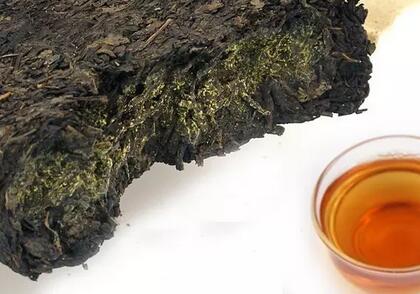
"Among the various types of dark tea, Fu Tea is the most distinctive." Traditionally made during the dog days of summer, it is called "Fu Tea" and is also known as "Fu Brick Tea" due to its brick shape. Fu Tea undergoes unique fermentation and flowering processes, producing "golden flowers" (Eurotium cristatum), which aid metabolism, digestion, and reduce fat, cholesterol, and blood sugar levels. It is revered as the "mysterious tea of the ancient Silk Road."
Fu Tea's "Golden Flowers" - Eurotium Cristatum
The flowering process is a defining feature of Fu Brick Tea, where the dominant fungus, Eurotium cristatum (commonly known as "golden flowers"), grows and reproduces under specific temperature and humidity conditions. This fungus is non-toxic and produces beneficial bioactive compounds such as lipase, protease, α-amylase, polysaccharides, and fat-decomposing enzymes.
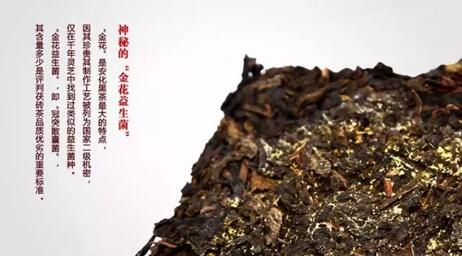
Clinical medical trials have shown that Fu Tea has significant effects on lowering lipids, blood sugar, and blood pressure in humans.
Main Benefits of Dark Tea
Authoritative studies, including animal experiments, clinical trials, toxicology research, safety evaluations, and epidemiological surveys, indicate that the extracts of Fu Tea's "golden flowers" activate PPARYPPAR6. Two new active compounds, Fuzhuanin A and Fuzhuanin B, significantly reduce fat compounds, lipids, blood pressure, blood sugar, and cholesterol. Long-term consumption of Fu Tea promotes metabolism, enhances physical health, delays aging, and provides preventive and therapeutic benefits.
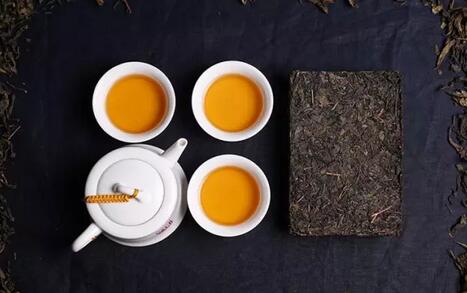
The Health Drink of the 21st Century
Dark tea is an essential beverage for people in northwest China. The Japanese call it "slimming tea," Koreans refer to it as beauty tea, and the Chinese regard it as a healthy digestive tea. Globally, it is recognized as the health drink of the 21st century. The saying, "Better three days without food than a day without tea," highlights the centuries-old benefits of dark tea.
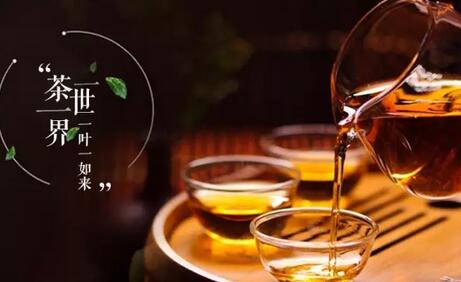
The health issues dark tea addressed in the past are now prevalent in urban lifestyles: suboptimal health, high stress, unhealthy diets rich in spicy and greasy foods, reduced physical activity, constipation, insomnia, gout, obesity, throat discomfort, fatty liver, and gastrointestinal disorders. Dark tea is an effective preventive measure against these modern ailments!